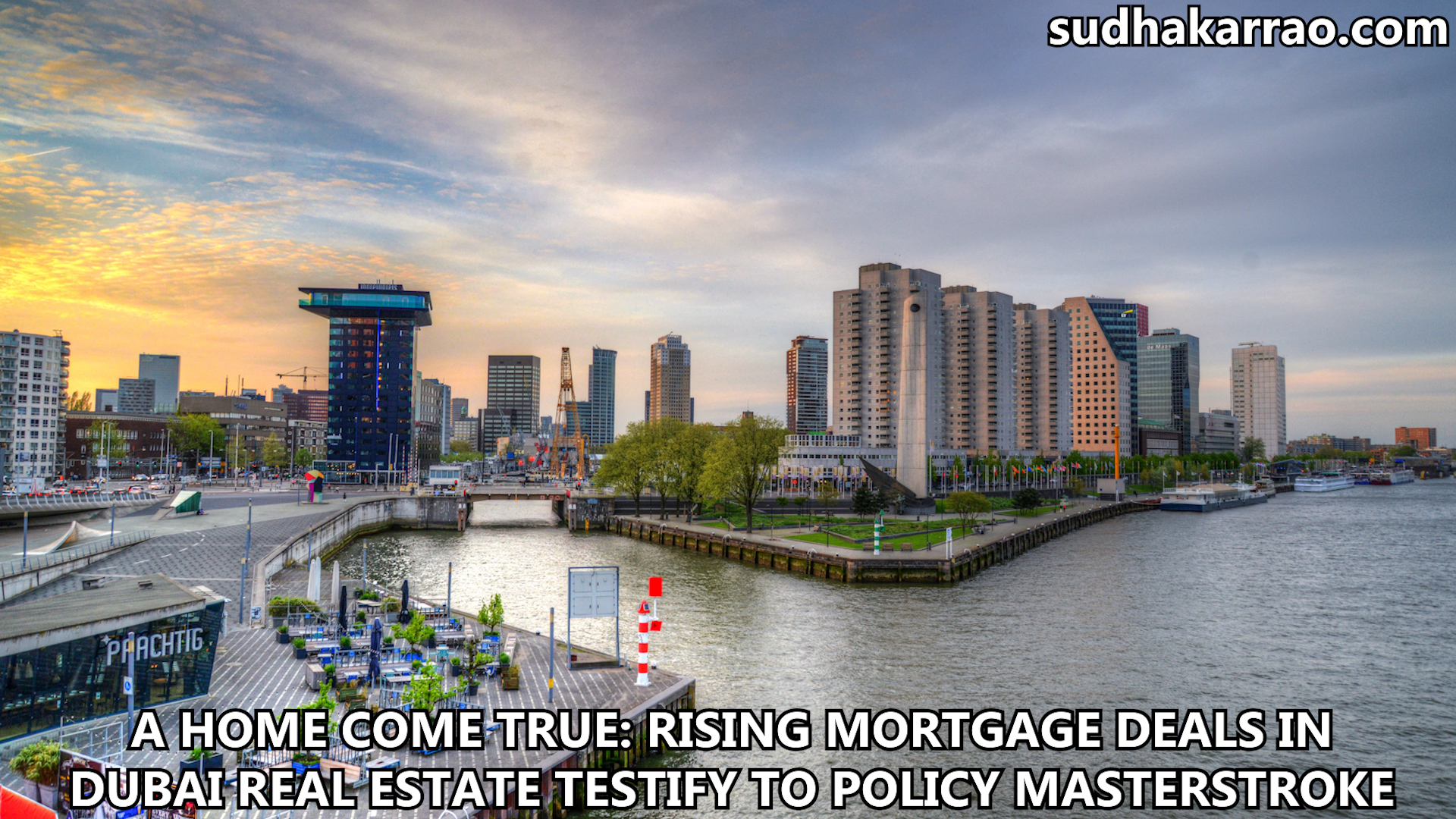A home come true: Rising mortgage deals in Dubai real estate testify to policy masterstroke
In recent years, the UAE leadership has had hands-on involvement in the conception and implementation of many laws aimed at breaking age-old notions about the Gulf nation. Sweeping reforms, like the 100% business ownership rights for foreigners, significant relaxations to personal freedoms, and the Abraham Accord, are a few cases in point. Also notable are a few proactive, policy-led interventions, done in light of the pandemic and associated economic downturn.
Now, all these efforts are beginning to bear fruit across growth sectors in the UAE; particularly in real estate, which is important within the larger economic diversification framework. As part of the pandemic-related stimulus package, the Central Bank launched a number of measures, including the 5% increase in LTV ratio, reduction in the required down payment to 20%, and increase in lenders’ exposure to the real estate sector. And if the latest official figures are any indication, the impact has been profound.
Steady growth in mortgage transactions
Immediately after the stimulus package was announced in early 2020, mortgage transactions witnessed a knock-on impact, as per the report by Mortgage Finder(1). Mortgage transactions increased 40% between H1 and H2 of 2020. And accompanied by effective crisis management, and the methodical resumption of business activity, mortgage transactions in Dubai increased by 91%, between H2 of 2020 and H1 of 2021.
Figures signaling a broader shift
While the increase in mortgage transactions alone testify to the efficacy of these policies, the finer details of the transactions are signaling a broader shift in investor sentiment. Of all transactions, 27% are Islamic mortgages, while the rest 73% are conventional mortgages, which indicates the rising representation of foreigners and expats in the mortgage segment. In fact, throughout 2020, mortgages were availed by homebuyers from 45 countries; with the UK, US, Indian, and French nationals leading the demand. These diaspora dynamics need to be factored into UAE’s growing prominence, as a global hub.
Another telling observation is the even split in mortgage transactions between apartments and villas/townhouses; as opposed to previous years when apartments accounted for the majority of transactions. This development can be linked to an increased need for larger spaces following the pandemic lockdowns and the surge in work-from-home.
The way forward
In the short term, the Expo is expected to bring more dynamism in the real estate sector, across verticals like rentals, holiday homes, and hospitality. In H1 2021, 40% of all real estate transactions in the UAE were mortgage-based, with the value of mortgages reaching AED20.9 billion in January alone — the highest since October 2016.
It is important to note that, unlike in previous years, the majority of mortgaged properties are of completed status; not off-plan. Completed, and ready-to-move-in properties, accounted for 65% of mortgage transactions, while off-plan properties accounted for 30%. This scenario has implications for UAE’s long-standing supply glut. The government had previously created a dedicated committee
to balance the supply-demand dynamics. With inventories clearing out, the market could soon witness stability in prices.
That said, market forces are unlikely to hamper mortgage uptake. The low-interest environment is set to remain for the foreseeable future. Investors have recently availed mortgage rates as low as 1.99%, which is significantly less compared to the low rate of 2.49% in mid-2020. More borrowers are expected to enter the market in the final quarter of 2021, driven by post-pandemic recovery, better financial clarity, and customer-centric initiatives that the government continues to launch.




